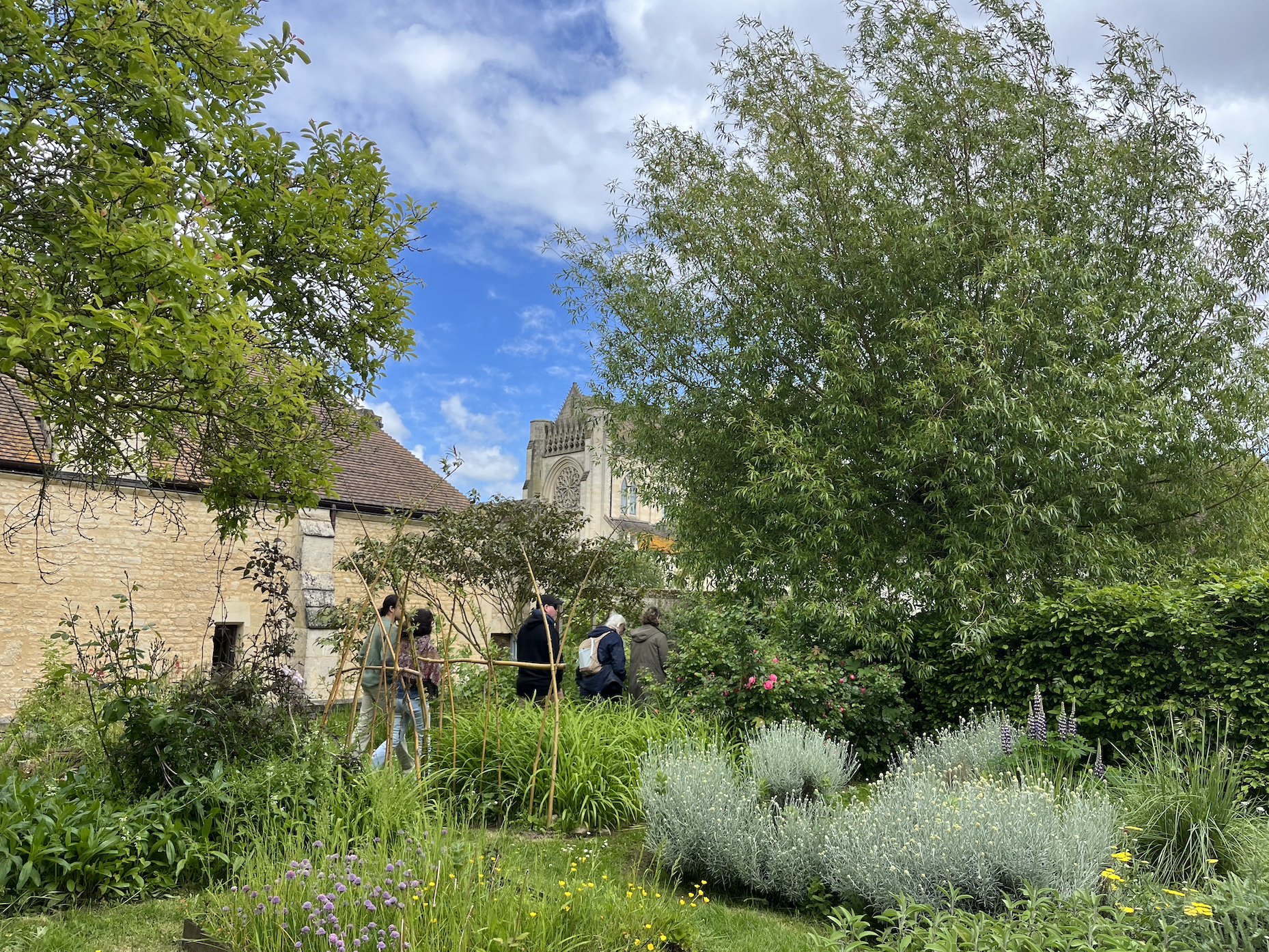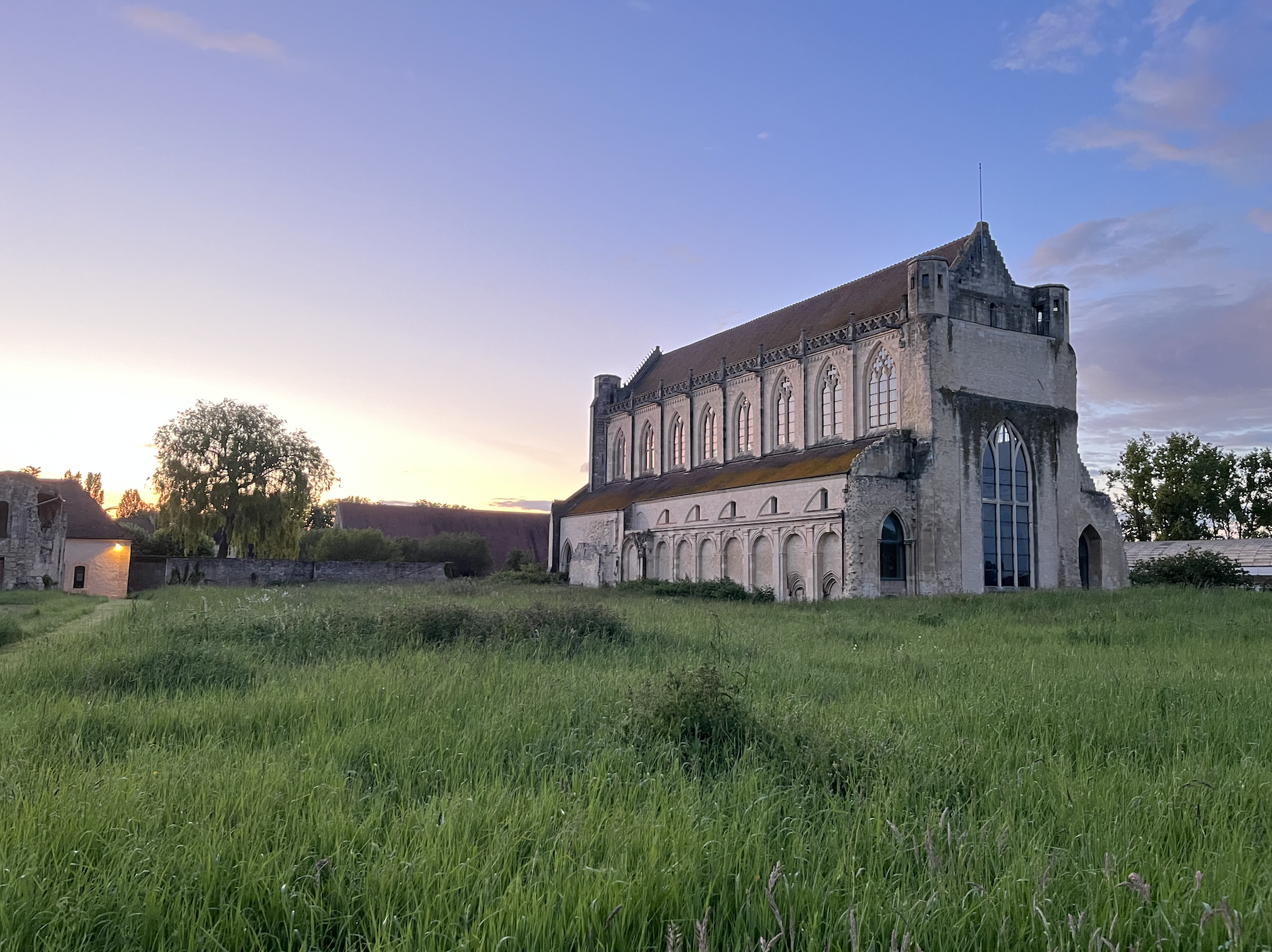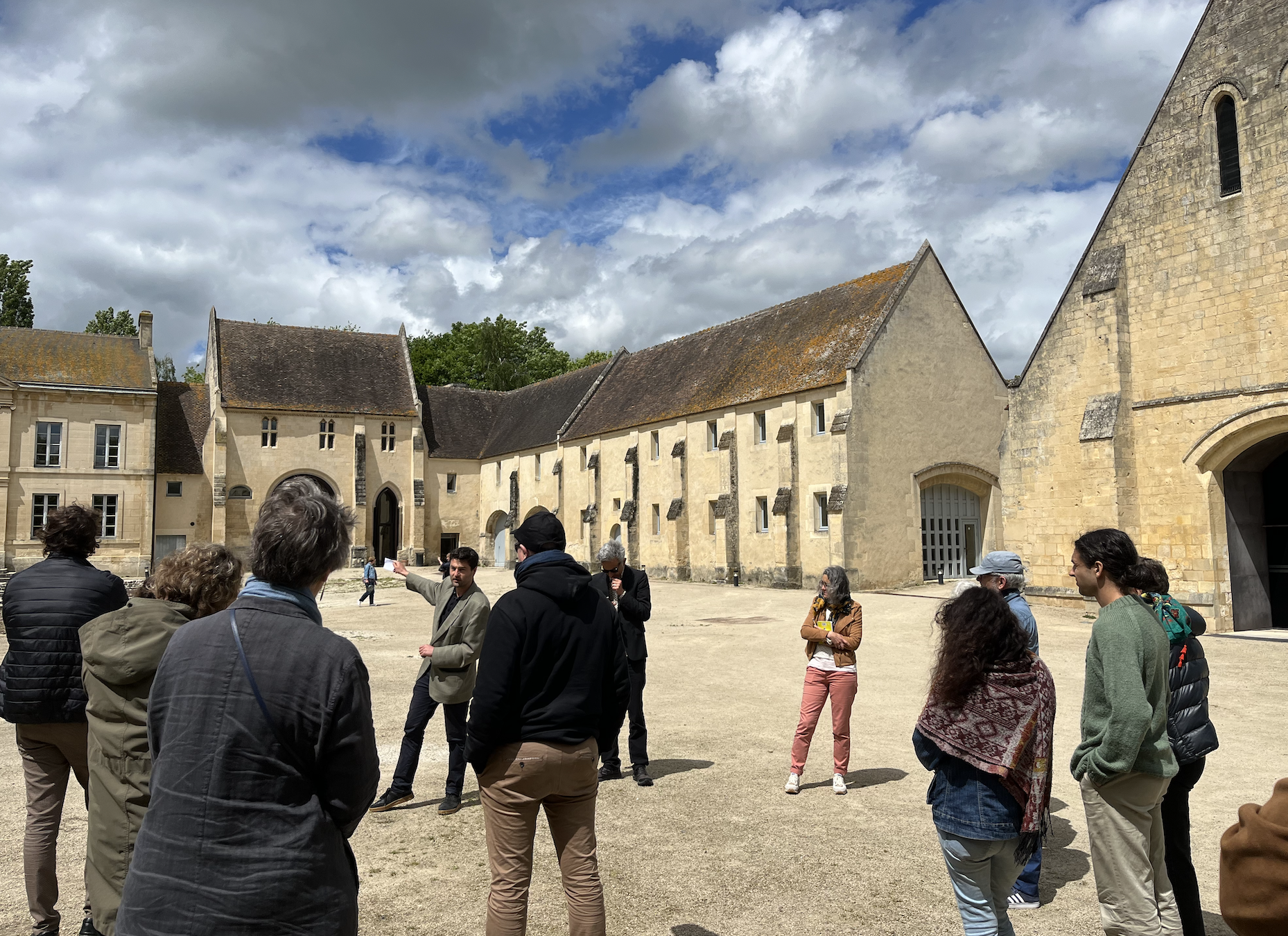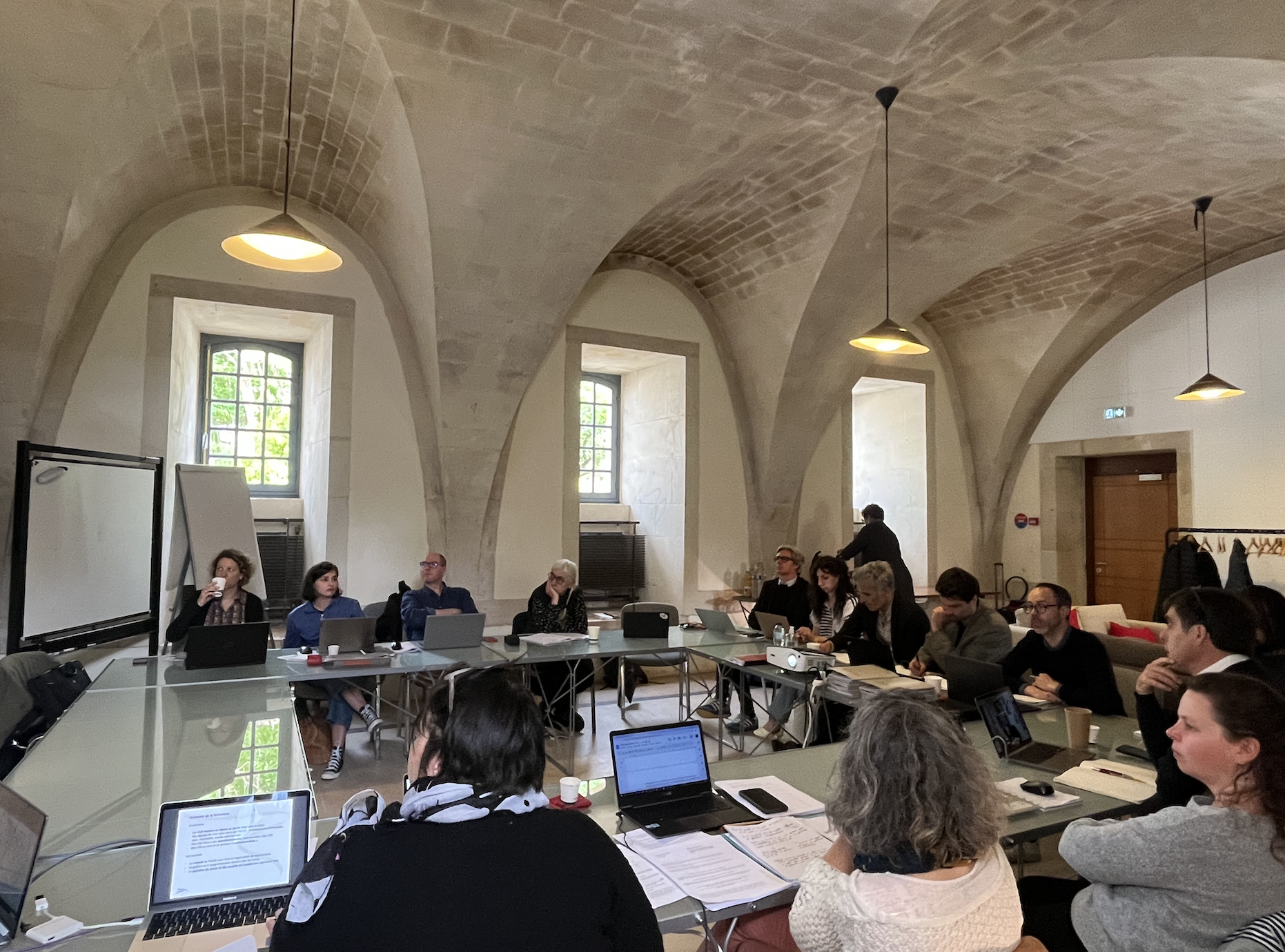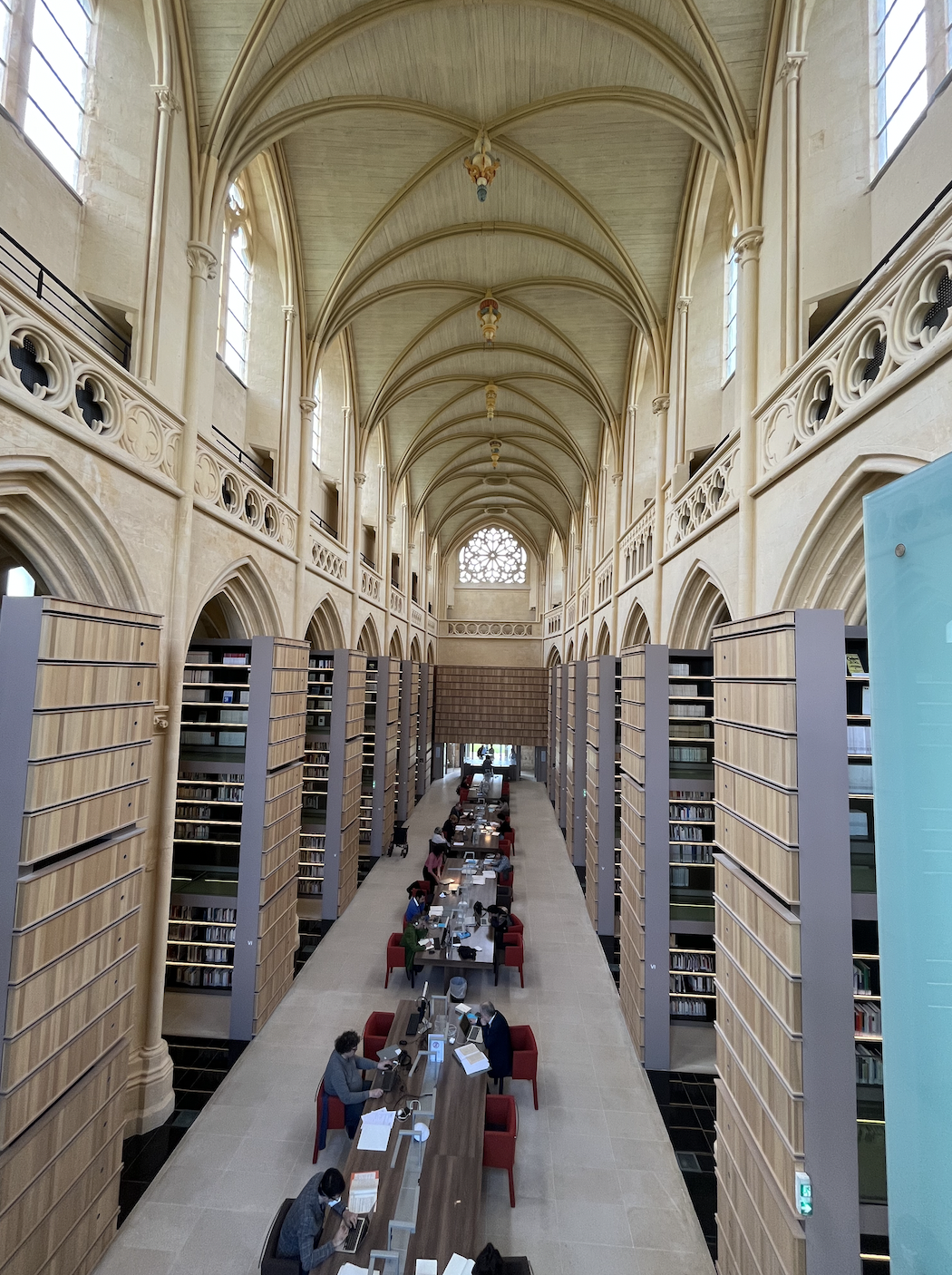On 15 May 2024, the ACCR teams and partners gathered at the Abbaye d'Ardenne for the third day of feedback and field testing of the "Interpreting and applying the principles of the Faro Convention" training course. This course was organised and coordinated by the ACCR to help its members understand and put into practice the Council of Europe's framework convention on the value of cultural heritage for society. It is run by the Oiseaux de Passage cooperative.
The third day of the meeting focused on the notion of cooperation and laid the foundations for a Faro self-assessment process specific to ACCs.
Co-operation: a change in the institution's stance /
The group discussed the implications of moving from a participatory to a cooperative approach. These are two processes that can address complementary aspects of project development.
Co-operation enables a dynamic of shared responsibility to be established between the various stakeholders in a project and local players. Through this process, it is a question of improving governance bodies. The CCR network is looking at ways of changing the way it operates from this perspective. The strength of a network lies in its ability to go beyond the realities of the territory and to reach out to the political.
Far from being a brake on the creativity of artists and programmers, shared responsibility enables everyone to play an active role in the decision-making process, thereby limiting bias.
Workshop: Developing an assessment grid in the Faro' spirit
The aim of this workshop was to put forward hypotheses for reflection and to consider the Faro criteria: how can they be applied or transposed to the costings? These assessments should be seen as a step towards making progress, changing what needs to be changed by raising the awareness of the whole team, giving the CCR a roadmap and enhancing what has already been done.
Based on a model drafted and applied by the Council of Europe, the teams laid the foundations of this grid using three approaches:
- Producers: who takes part in the process?
The presence of an active civil society that shares a common interest in a specific heritage (heritage community); the presence of people capable of conveying the message (facilitators); political commitment and support (local elected representatives, institutions); commitment and support from the private sector, etc.
In particular, this meant redefining what would constitute a heritage community on the scale of a CCR.
- Process: how to create situations for cooperation?
Consensus around a shared vision of heritage (What opportunities for dialogue? Who runs these times and with what tools?...); willingness of all stakeholders to cooperate (What are the rules for cooperation towards a common objective? How do we ensure that we express mutual recognition?); common interest defined for the action linked to heritage (What place for the analysis of the process implemented to carry out the action? Do the researchers sit on the Board, and do they have a place to contribute their views? What room is there for research and experimentation?)
- Outputs: what does this produce in terms of stories?
The group's willingness to engage in a process of developing different narratives depending on the individuals and places involved (we need to ask ourselves which team will be able to pay attention to the development of these narratives); Aspirations for a more democratic socio-economic model (towards better representation of the area's social diversity), etc.
This initial discussion was a first stage in the construction of this grid. One of the objectives at the end of this training is to obtain an assessment protocol, which is a guide to help with the mission. Eventually, the Faro Convention facilitators will set up cross-visits between CCRs within the network. In pairs, the facilitators will visit a CCR to support them in their self-assessment and share with them the training modules they have tried out. This trip will provide an outside perspective, which often makes it easier to take a step back and assess the situation.
This new way of putting CCRs in touch with each other also enables us to see if there are any common problems. If this is the case, it will be all the easier for the ACCR to take up these issues and propose new collective explorations.

